GEAB 196
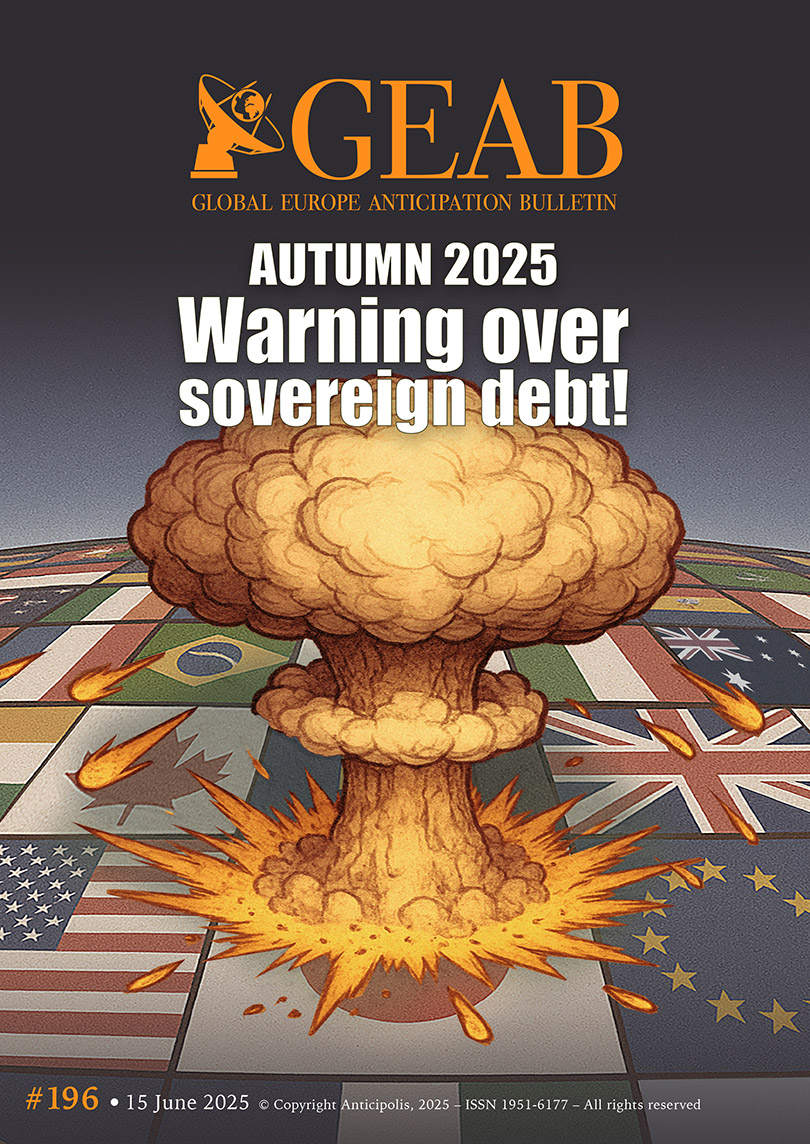
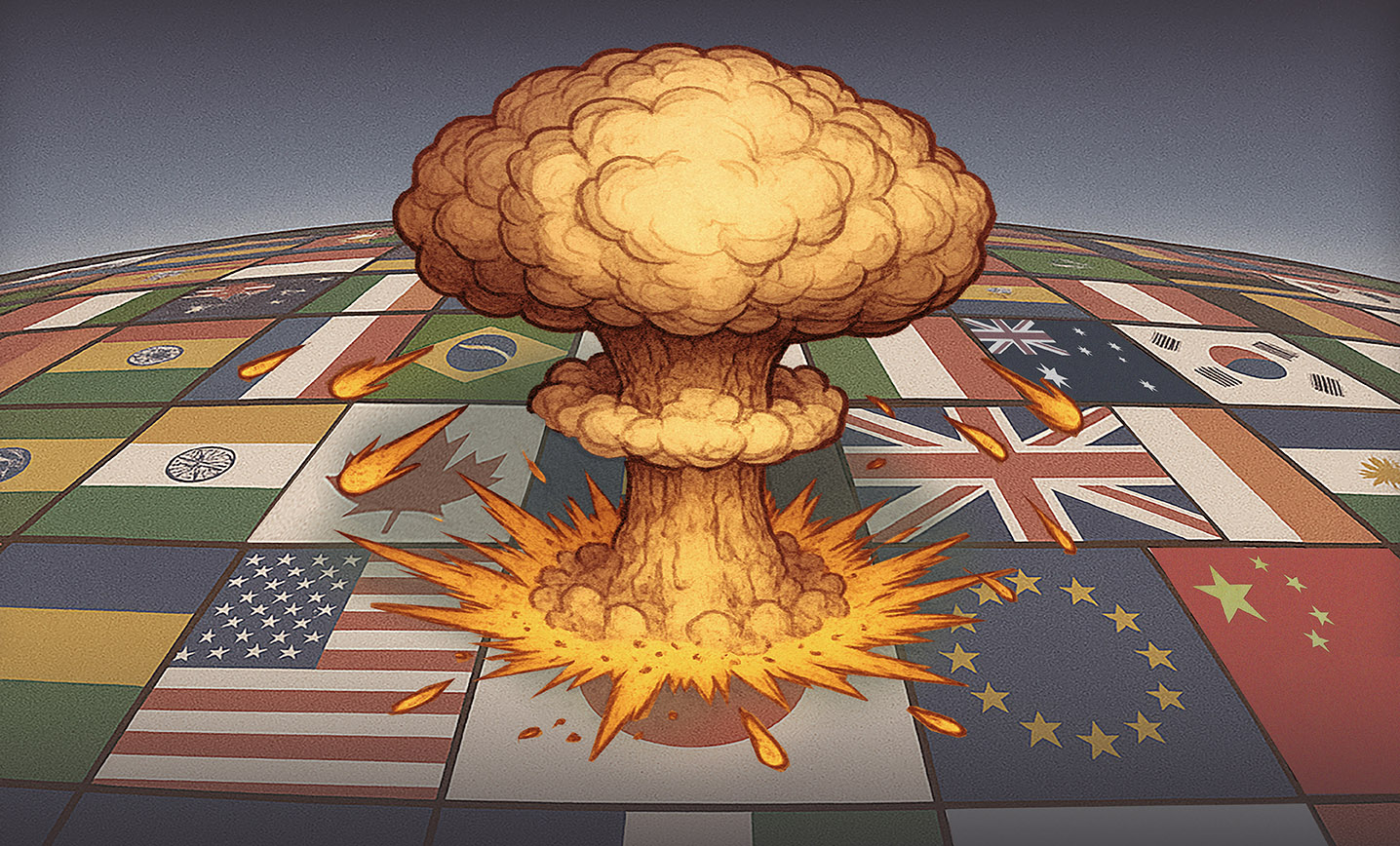
EDITORIAL
80 years ago exactly, the Americans dropped the first atomic bomb on the Japanese city of Hiroshima, thereby ending the Second World War and “annexing” Japan. It is no coincidence that from the far reaches of Japan, a Western empire that pushed the boundaries of power (territorial, military, geopolitical, technological, and financial) to their limits, a major cathartic shock could come in the global systemic transition process that we have been observing for 19 years.
The sad date of 6 August 1945, which the Japanese will be celebrating this summer, marks the birth of the American empire. Taking technology developed by the Germans and putting it to military use in Japan, the United States created an empire by establishing a Pax Americana based on its famous “nuclear umbrella”. But 80 years on, the empire is notoriously exhausted by the cost of power.
The core of the system (the United States, Canada, the Eurozone and Japan) accounts for 68% of the world’s public debt and 47% of global GDP. American power rests on a mountain of debt that has been undermining the whole edifice for the last twenty years, despite the appearance of consolidation[1]. Between the first financial shock in 2008 and today, growing geopolitical tensions have allowed capital flows to continue to be channelled into the US technology heartland, which is portrayed as the last safe bastion of global finance, navigating a well-constructed narrative of systemic uncertainty.
This situation has enabled America and its allies to continue issuing more and more debt to finance a common supremacy that is nevertheless increasingly challenged by the emerging economies, and in particular the BRICS, a club that continues to grow (280 million more people since Indonesia joined in January this year[2]). In a multipolar world where sovereignty is built on the multiplication of alliances, the Western camp demands exclusivity and is shrinking, as is the number of potential creditors to the common power. Japan is emblematic of this situation: it is both the USA’s largest creditor (USD 1,150 billion) and the world’s most indebted country (USD 9,000 billion, or 235% debt/GDP). Over 90% of its own debt is held by domestic players, a situation that has only been made tenable for the Japanese population “thanks” to the structural deflation that the country has experienced for nearly 30 years. Nevertheless, the Covid crisis has changed this, and inflation is now forcing the BoJ to slow activity and tighten monetary policy after 8 years of negative rates. This historic trend reversal is combined with the radical change in the political situation and power strategy in the United States, and of course with the prospect of escalation on the Euro-Russian front, that other empire frontier closer to home.
As it turns out, events on this front are about to prove wrong our anticipation that peace will be signed in the first half of the year. But the second part of our anticipation is getting stronger. If peace is not signed before the summer, it is not just a continuation of the conflict under cover of fire that we are going to have to get used to: as the movement of US troops north of Europe already shows[3], the Arctic issues we have discussed at length in recent months are shifting north of the Euro-Russian border, in a conflict likely to bring Russia and NATO soon into contact (particularly in the Baltic states), thereby triggering the famous Article 5 of our collective defence…
Will the West be able to win this final phase of the ‘Star Wars’[4] that it has instigated? We think it will not and the mere prospect of such an escalation will be enough to ignite the global bond crisis that has begun to unfold from Japan, and which we set out to demonstrate in this issue. The ashes of the Hiroshima atomic cloud, after forming a protective umbrella over the world, will fall down again…

Marie-Hélène Caillol,
Managing editor
To access the full issue, please log in or register here
______________
[1] A good example of the superficial nature of consolidation is provided by this Basel Accord, published in 2010 as a consequence of the 2008 financial crisis, which still hasn’t been implemented 15 years later despite a recent attempt called “Basel III endgame” for deployment in 2025 that ultimately won’t materialise. Sources : Brookings, 07/03/2024 ; Atlantic Council, 13/05/2025
[2] Source: AlJazeera, 07/01/2025
[3] Source: Harici, 27/05/2025
[4] The Strategic Defence Initiative, dubbed Star Wars by the media, dragged a bloodless Soviet Union into an arms race and is considered to have contributed to the fall of the Soviet empire in 1991. Source: NBCNews, 06/06/2004

WARNING It's been a long time since our team issued a warning alert at this level. But many trends are now reaching inflection points that are likely to reinforce themselves [...]
TREND At the intersection of medicine, technology and economics, GLP-1-based anti-obesity treatments are profoundly reconfiguring our relationship with the body. Behind the promise of a miracle solution lies a society [...]
REPORT To gain a better understanding of the ideology and visions of the future held by the great apostles of this libertarianism that reigns in the White House, we went [...]
SIGNALS Analyses of the techno-social landscape generally promise us a future increasingly influenced by the major technological powers, via their algorithms which today govern life online. This projection is based [...]
RECOMMENDATIONS Invest in Bitcoin Like Donald, invest some of your money in BTC. You've been doing it for a long time if you listen to our recommendations. If we are [...]

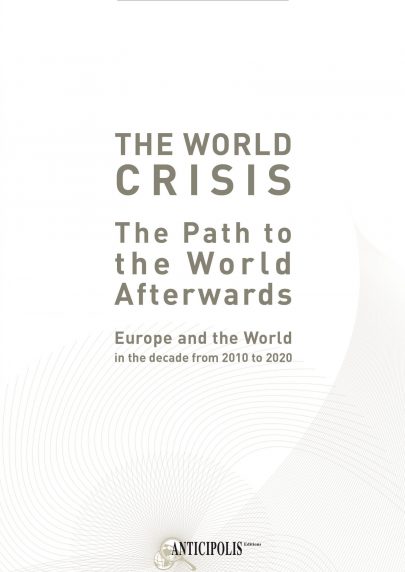


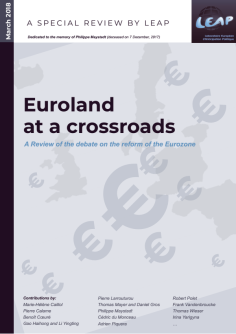
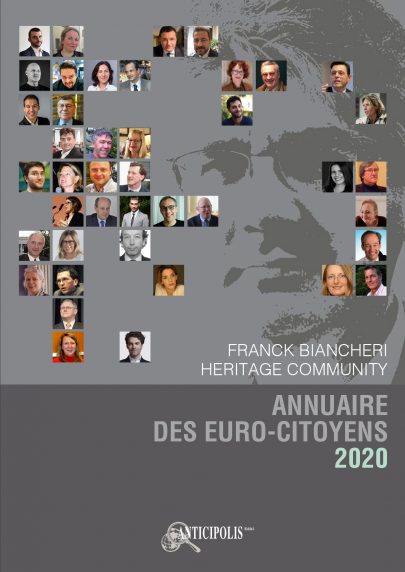

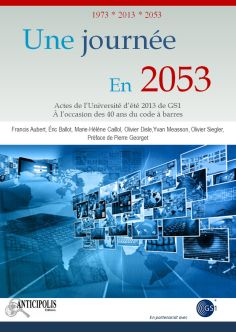
Comments